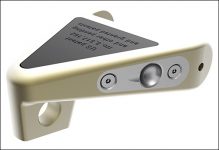
Toronto expands the use of RFID public bicycles program
[ad_1]
In April 2016, the Toronto Parking Authority (TPA) announced that it had selected Montreal’s public bicycle solutions company PBSC as the new supplier of Toronto’s public bicycle network. This year, TPA will purchase 1,000 RFID bicycles and 120 new sites from PBSC. The purchase plan is twice the number of TPA’s past public bicycle projects. At the same time, the Chicago Divvy project also began to add 99 parking sites and 1,000 bicycles.
PBSC was established in 2008 to provide a public bicycle system for Montreal. The BIXI-Montreal network currently has 5,200 bicycles and 460 sites. So far, PBSC has provided this program to 20 cities and several universities. The PBSC public bicycle project uses passive high-frequency RFID tags provided by Syrma technology and PBSC’s own readers. RFID technology accomplishes two things: identifying users to provide permission to pick up the car, and identifying the bicycle when the car is locked at a parking station.

(In order to identify the PBSC bicycle, a Syrma passive RFID tag is installed at the front wheel triangle lock of the bicycle)
Since the establishment of the company, PBSC has used nearly 500,000 13.56 MHz Syrma RFID tags compatible with the ISO 15693 standard. Currently, 45,000 bicycles have been put into use in 20 cities. A Syrma passive RFID tag is installed at the triangle lock of each bicycle wheel.
Jean-Paul Paloux, PBSC’s operations and R&D manager, said that PBSC can provide two application scenarios for urban and university bicycle users. For a one-time local user, the user can enter the credit card information at a kiosk near the bicycle station, so that a 5-digit password can be obtained. The user can then use the password to unlock the bicycle.
When returning the car, the user needs to lock the car back to the parked position. The Syrma HF reader at this location will read the bicycle triangle lock tag ID, and then the information will be sent to the server via the cellular network or some networks, indicating that the bicycle has been returned. Then, the tag will be bound to the read position information.
The second scene is designed for regular customers. In this scenario, the user pays online and then receives a reusable key card with a built-in Syrma RFID tag. The tag ID number is bound to the user and its account information. When using the car, the user inserts the RFID key card into the aluminum, damage-proof socket next to the PBSC reader to read. After reading the tag, the information will be transmitted to the server software. After confirming the validity of the account, the bicycle will be automatically unlocked.
These RFID data can not only provide a payment method for public bicycle project operators, but also provide reference data for maintenance. For example, the system can know the number and length of each bicycle use. The software can judge the distance traveled by the bicycle, which will help to complete the maintenance work. Paloux said: “We can know that bicycle 23 has been used 1500 times and needs maintenance.”

(Divvy parking place, the user activates the reader with an RFID key card, then the reader can read the tag ID, and the key is automatically opened)
As the return frequency of bicycles in some locations is higher, operators need to use trucks to transport these bicycles to other parking stations. Without RFID, PBSC needs to patrol various sites by car, but now, PBSC can view this information in the software.
Riders can view the location data of available bicycles through the CycleFinder mobile app.
RFID technology can also be used to provide warnings. For example, if a specific bicycle is not locked for more than 48 hours, and the readers of all stations fail to read the label of the bicycle, the PBSC administrator will receive an alarm warning that the bicycle may be lost.
Now, PBSC also offers an electric bicycle Boost, which has a built-in electric motor and rechargeable battery. These batteries are also used to power the tags and increase their reading distance.
Syrma is headquartered in India with offices in the United States, France, Switzerland, Germany, and Singapore. The company manufactures RFID hardware, including readers based on TI and NXP chips. The company also provides a public bicycle solution, which uses the company’s own middleware to access bicycles and track their use. This middleware can realize functions such as inventory management based on bicycle location and payment for borrowing a car.
Dahl said that Syrma also provides passive HF RFID tags for remote control car manufacturers for battery identification. He explained: “Syrma RFID tags are being used to help confirm the type of battery and its capacity. It can reduce time wasted by eliminating the hassle of programming and complicated settings.” Users can use a handheld RFID reader to read the tags. Confirm the battery model under the premise of damage to the battery.
In addition, the company also provides passive NFC RFID tags to the medical industry, which are attached to blister packages to ensure that they have not been tampered with before being sold.
[ad_2]



